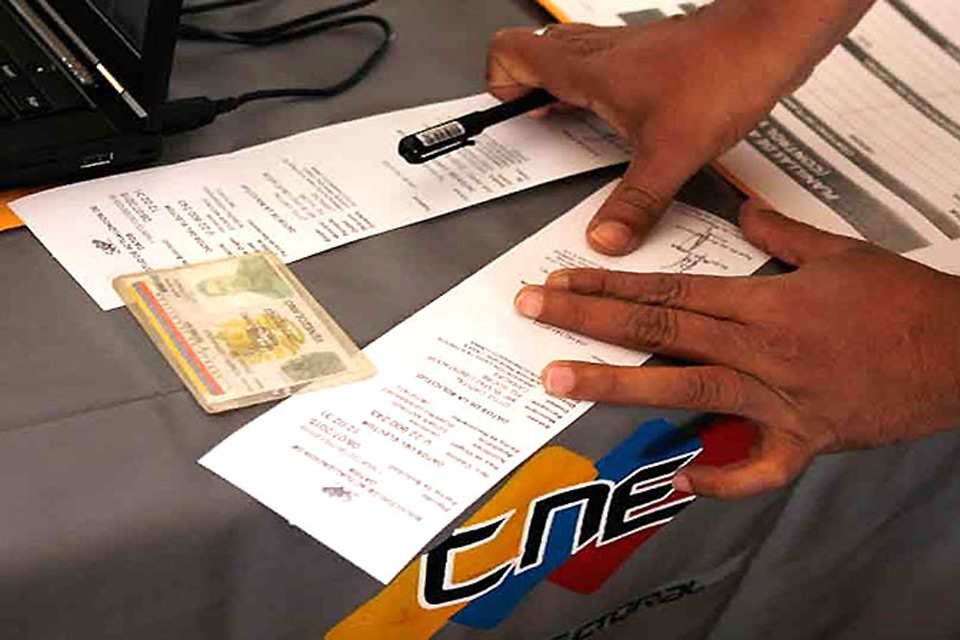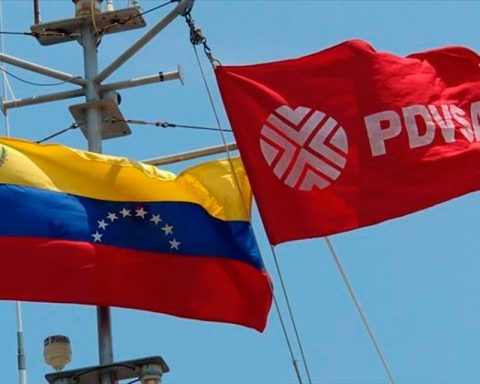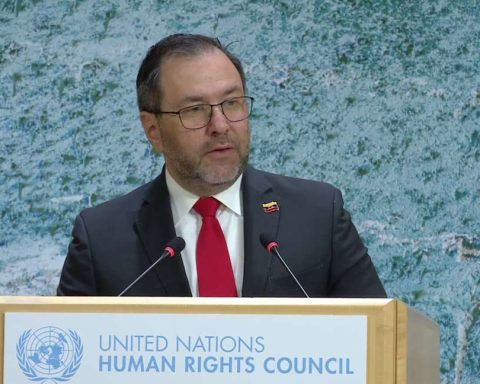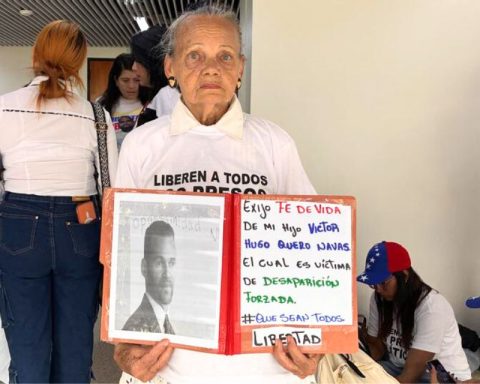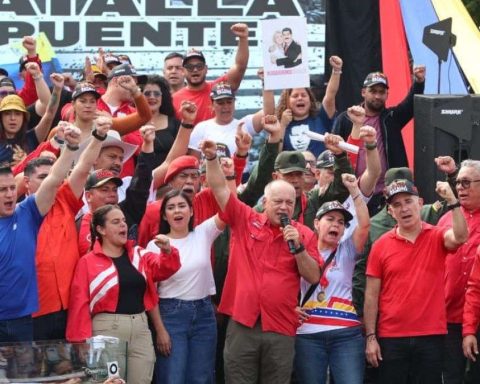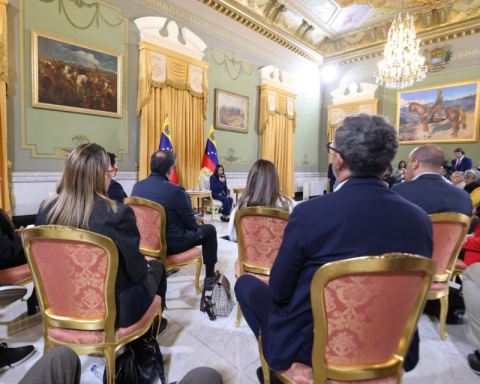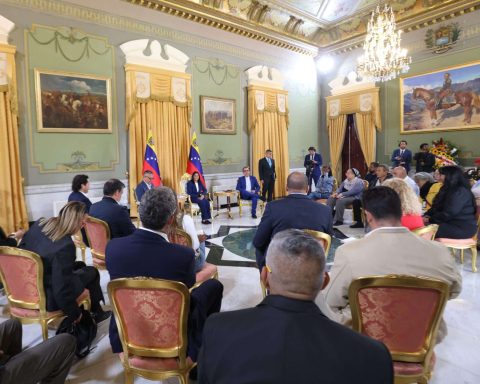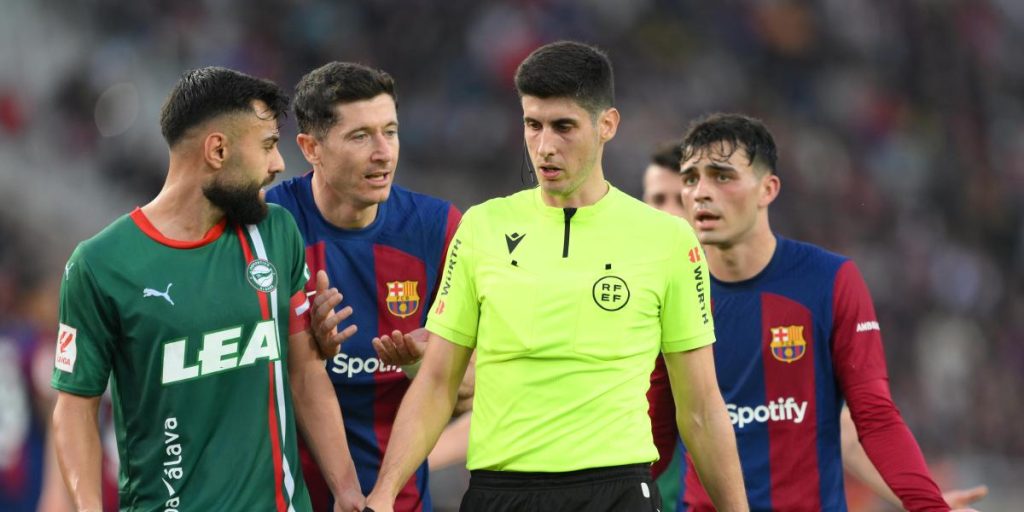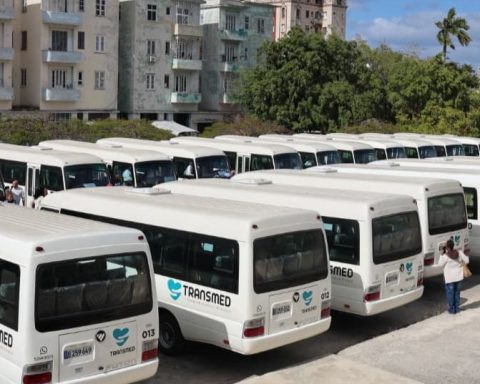They are assigned different activities with different levels of responsibility that range from transporting voters, witnesses and table members, to verifying that citizens have not been migrated from the voting center untimely and against their will.
Author: Ibrahim Lopez Pinero
Nicolás Maduro said at a campaign rally that Colombian artist Karol G is his “comadre” and that she wrote a song for him, “tomorrow it will be more beautiful,” he said. Edmundo González wore a national soccer team shirt at a meeting with university students and said he would create the conditions “so that they don’t have to leave.” The candidates who are concentrating the voting intention in Venezuela are also targeting young people to win their support at the polls on July 28.
Meanwhile, on the social network X a group of young people from the Primero Justicia party (the non-intervened one) published a video where they report on yourcard.coma website created specifically for educational purposes that reproduces the screen of the voting machine and the ballot that citizens will see on election day. The page also presents a form where the user can enter their data to verify their voting center and indicate whether they require mobilization on June 28.
“I know it’s very anxiety-inducing because it’s our first time voting in a presidential election, there’s no democracy and we don’t even know what the voting screen looks like. You just have to log in to yourcard.com and there you will find an exact simulation of what the voting machine will be like on July 28,” says the audiovisual piece.
Attention young voters! If you are going to cast your vote for the first time and you are worried about not knowing the voting system, we have the solution! Go to https://t.co/JVH8Bpq7kh and practice how to vote for Edmundo González and unity. Your vote counts! #VoteWithConfidence #ActiveYouth pic.twitter.com/nn94HUd6pa
— Rodrigo Campos (@RodrigoCamposPJ) June 13, 2024
On June 20, a group of students launched the “Jóvenes con Edmundo” movement from the Faculty of Medicine of the University of Zulia to articulate the necessary efforts and provide support in the defense of the vote in that entity. “We chose to hold this press conference today at the Faculty of Medicine, since it is one of the schools with the largest student body and these students need to learn how to vote, they need to be informed of what is happening on the street,” said Guillermo Montero, a member of the student center.
In Aragua, a group of young people spend their weekends standing at a traffic light with a poster of Edmundo González and María Corina Machado to teach passersby how to vote. “Do you think that a few of us young people would be doing what on a Saturday right now? We are fighting for the country, we are studying, working, building a country, but what are we doing? Paying attention to politics because in 24 years they have destroyed everything and all we have left to do is recover the country on July 28th, we are counting on you,” says one of the activists to a driver.
YOUNG PEOPLE PROMOTING THE VOTE FOR EDMUNDO GONZALEZ IN THE STREETS. pic.twitter.com/cg7bLN2vob
— freddyzur (@freddyzur) June 18, 2024
*Read also: #GuachimánElectoral The scenarios where the opposition and Chavismo fight for votes
Take control
Isabella Picón, coordinator of the initiative Take control -a project to stimulate the participation of the young population- explained to Electoral Guard that the willingness of Venezuelan youth to get involved is much greater than that recorded in previous processes, and predicts that on election day young people will play a fundamental role in the transformation of the country.
“The Take Control campaign has four levels. The first was to register in the Electoral Registry – which we have already passed -, promote the vote, vote and defend the vote. Right now we are in the stage of promoting the vote and defending the vote, which implies that participating in this election is not only about voting, it is about taking control in general, which is about participating in each of the stages.”
Picón says that the initiative also offers courses for polling station members that complement the mandatory workshop of the National Electoral Council (CNE), as well as for witnesses and people in general who want to participate in the citizen verification process once the voting centers close. He emphasizes that Toma el Control also encourages mobilization without necessarily being associated with political organizations.
“This is a movement for participation and that implies that citizens must organize themselves in the communities to mobilize votes and ensure that there is no interference, that people can vote freely. This is a job that cannot be done only by political parties, but by all citizens, so that young people become active not only by voting but by sharing information among themselves and mobilizing among themselves.”
Youth Vote
Wanda Cedeño, national coordinator of Voto Joven, says that to stimulate youth mobilization and participation in the presidential election, the organization is implementing three strategies: a targeted communication campaign on social media for citizens between 18 and 21 years old as well as for those in the 24 to 30 age group; visits to universities carrying the electoral horseshoe and ballot to publicize the candidate offer and teach how to vote; and finally, developing cultural activities to promote the importance of voting and its citizen defense.
“Compared to previous, much longer processes, such as the one in 2012, where the special registration and data update period lasted more than 8 months with more than 1,500 points nationwide and a large communication campaign by the CNE, 800,000 young people were registered, so achieving 600,000 in just 29 days speaks of the fervent confidence that young people have in voting and how, in the face of obstacles, they organize and move forward to defend their rights,” he highlights.
Cedeño believes that young Venezuelans will have a fundamental role in the organization, coordination and promotion of the 28th of July. “They are becoming replicators of the necessary truthful information, and therefore they are helping other people to identify false information, but there are also many young people getting active in the defense of the vote. I think we are going to see many young people in the centers monitoring what is happening.”
I share with you part of the work that is being done in #Caracas to encourage this vote #28J 🗳. We are in the final stretch, in just 13 days we will have before us a golden opportunity to achieve change. Let’s continue! pic.twitter.com/V9vKEP1Kyj
— Roberto Patiño (@RobertoPatino) July 15, 2024
Cheo teaches how to vote
Political leader Roberto Patiño leads an activity in Caracas to encourage voting in view of the presidential election. Several young people are seen in a workshop teaching about 30 senior citizens how to vote with a horseshoe simulation and an electoral machine. “We are in the final stretch, in just 13 days we will have before us a golden opportunity to achieve change. Let’s keep going!” he writes on his X profile.
Patiño is committed to encouraging and facilitating participation. That is why, in preparation for July 28, he relaunched the digital application “Cheo,” an artificial intelligence (AI) bot that can be shared via WhatsApp and has the ability to resolve legal questions regarding electoral matters as well as inform users of their voting center.
“We believe that these tools have the potential to help promote participation. We decided to use technology to solve information problems that citizens have. Many people were moved from their voting centers without notice and in this way we facilitate them through WhatsApp, which is the application most used by Venezuelans, the consultation to confirm where they are to vote, if they were selected as members of the table and what they must do to assume that role, as well as to ask them if they want to be volunteers.”
The leader explains that young people participated in the design of the app, “people with technical skills but also with a lot of commitment and a lot of vision for Venezuela,” he emphasizes. Patiño indicates that to date “Cheo” has exchanged more than 200,000 messages with users and recalls that during the primary election in October he reached the metric of 700,000 messages.
“I expect that we will overcome this problem because as the days go by the application is going viral. To encourage voting and mobilization of young people we are putting these tools at the service of information through social networks and new technologies, communicating what is at stake and trying to demonstrate that the participation of young people is the key to achieving change,” he says.
Young people with Venezuela Apure. We continue moving forward motivating and teaching how to vote. This July 28th, everyone with Edmundo on the MUD card, the one with the little hand @ADOrganization_ @JAD_Venezuela @JovenesConVzla_ @EdmundoGU @PieroMaroun pic.twitter.com/lM26zLIKtm
— Henry Silva Nunez (@HenrySilvanunez) July 9, 2024
The youth are with Venezuela
Jóvenes con Venezuela is the youth wing of the Comando con Venezuela, which promotes González Urrutia’s candidacy. It is made up of young people from the 16 political and civil organizations that make up the Democratic Unitary Platform and other allies such as Cambio en Paz.
“We also involve Students with Venezuela and organize the entire movement of non-governmental organizations at the national level for the promotion, defense and care of the vote,” says Eliannys Vidoza, representative of Youth with Venezuela and national youth coordinator of Encuentro Ciudadano (EC).
“Youth present, Edmundo president”
Young people from Aragua take to the streets of downtown Maracay to encourage people to vote for freedom.#YouthWithVzla pic.twitter.com/HWGwD874kU
— Aragua ConVzla Command (@AraguaConVzla) July 11, 2024
The activist indicates that in order to encourage voting and mobilization, they have developed educational work that consists of explaining the benefits of voting and the effect of voting because they believe that youth participation comes from the recognition of the lack of opportunities that young people have today.
“We prepared various activism plans at the national level to teach people how to vote, to verify their data at the centers and to train those people who are witnesses, to train them in citizen auditing and to support those who were selected by the CNE to have a responsibility on the 28th.”
Vidoza points out that on July 28, the youth structure will be distributed among the Red 600K, the Comanditos and the Héroes del Voto. From these spaces, they will develop different activities related to volunteering with different levels of responsibility, such as participating as table members, witnesses, registering voters, promoting voting, verifying that registered citizens have not been migrated against their will and teaching voters the process of D-Day.
“It would be divided into different functions, those who are strictly involved in the electoral issue of the center, those who protect the center with all the issues of mobilization, logistics, operation for witnesses, members and people who will attend to vote; and those who are promoting the processes I described above,” he added.
We, the young people of Carabobo, continue to take the message to every corner of our state.🗳️❤️
This time we walked through the streets of the La Trigaleña Urbanization to spread the message of voting in favor of @EdmundoGU
Everyone with Edmundo 🗣️🗣️🇻🇪 pic.twitter.com/4n4GbrNSV3
— Young Sales Carabobo (@VJ_Carabobo) June 26, 2024
Post Views: 473
